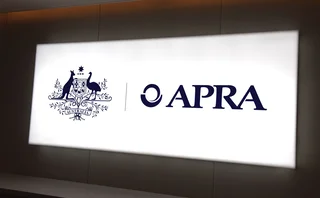
Isda presses Congress for passage of netting provisions
The International Swaps and Derivatives Association, the trade association for the financial risk management industry, has teamed with other key trade bodies in pressing the United States Congress to secure favourable passage of legislation on financial contract netting before it adjourns this year.
The provisions include improvement to payment risk reductions and netting provisions of the Bankruptcy Code and US bank insolvency laws. In a joint letter to Congress, Isda asserted the legal uncertainty created by the Bankruptcy Code’s treatment of financial contracts has resulted in US companies receiving less favourable credit treatment from their trading counterparties that are not subject to the US insolvency laws.
These uncertainties have been a major impediment to the adoption of cross-product netting documentation developed by the derivatives industry. Removing these uncertainties will make it easier for providers of credit to ascertain their risks, thereby assisting in providing credit to American businesses, the letter stated.
"The time to act on these provisions is now," said Robert Pickel, Isda's chief executive, in a statement. "The risk reduction benefits of the netting provisions are enormous, and we hope Congress will act to eliminate the legal uncertainty created by the Bankruptcy Code's treatment of financial contracts."
Other signatories to the letter include: American Bankers Association, ABA Securities Association, The Bond Market Association, Emerging Markets Traders Association, The Foreign Exchange Committee, Futures Industry Association, The Financial Services Roundtable, Investment Company Institute, Managed Funds Association, The New York Clearing House Association, The Options Clearing Corporation and the Securities Industry Association.
Only users who have a paid subscription or are part of a corporate subscription are able to print or copy content.
To access these options, along with all other subscription benefits, please contact info@risk.net or view our subscription options here: http://subscriptions.risk.net/subscribe
You are currently unable to print this content. Please contact info@risk.net to find out more.
You are currently unable to copy this content. Please contact info@risk.net to find out more.
Copyright Infopro Digital Limited. All rights reserved.
As outlined in our terms and conditions, https://www.infopro-digital.com/terms-and-conditions/subscriptions/ (point 2.4), printing is limited to a single copy.
If you would like to purchase additional rights please email info@risk.net
Copyright Infopro Digital Limited. All rights reserved.
You may share this content using our article tools. As outlined in our terms and conditions, https://www.infopro-digital.com/terms-and-conditions/subscriptions/ (clause 2.4), an Authorised User may only make one copy of the materials for their own personal use. You must also comply with the restrictions in clause 2.5.
If you would like to purchase additional rights please email info@risk.net
More on Regulation
Treasury clearing timeline ‘too aggressive’ says BofA rates head
Sifma gears up for extension talks with incoming SEC and Treasury officials
Rostin Behnam’s unfinished business
Next CFTC chair must finish the work Behnam started on crypto regulation and conflicts of interest
European Commission in ‘listening mode’ on potential FRTB changes
Delay or relief measures on the table after UK postpones start of Basel III to 2027
Australian FRTB projects slow down amid scheduling uncertainty
Market risk experts think Apra might soften NMRF regime to spur internal model adoption
EBA to address double-counting caused by new capital floor
Existing EU capital add-ons for model risk would duplicate new Basel floor on internal models
The Emir error reports that cost banks millions
Dealers lambast onerous EU requirement to notify clients of all errors and omissions
Basel stops short on wrong-way risk
New guidelines a step in right direction, but experts warn they won’t prevent another Archegos
Trump 2.0 bank supervision: simpler but no soft touch?
Republican FDIC vice-chair Travis Hill wants more focus on financial risk instead of process







